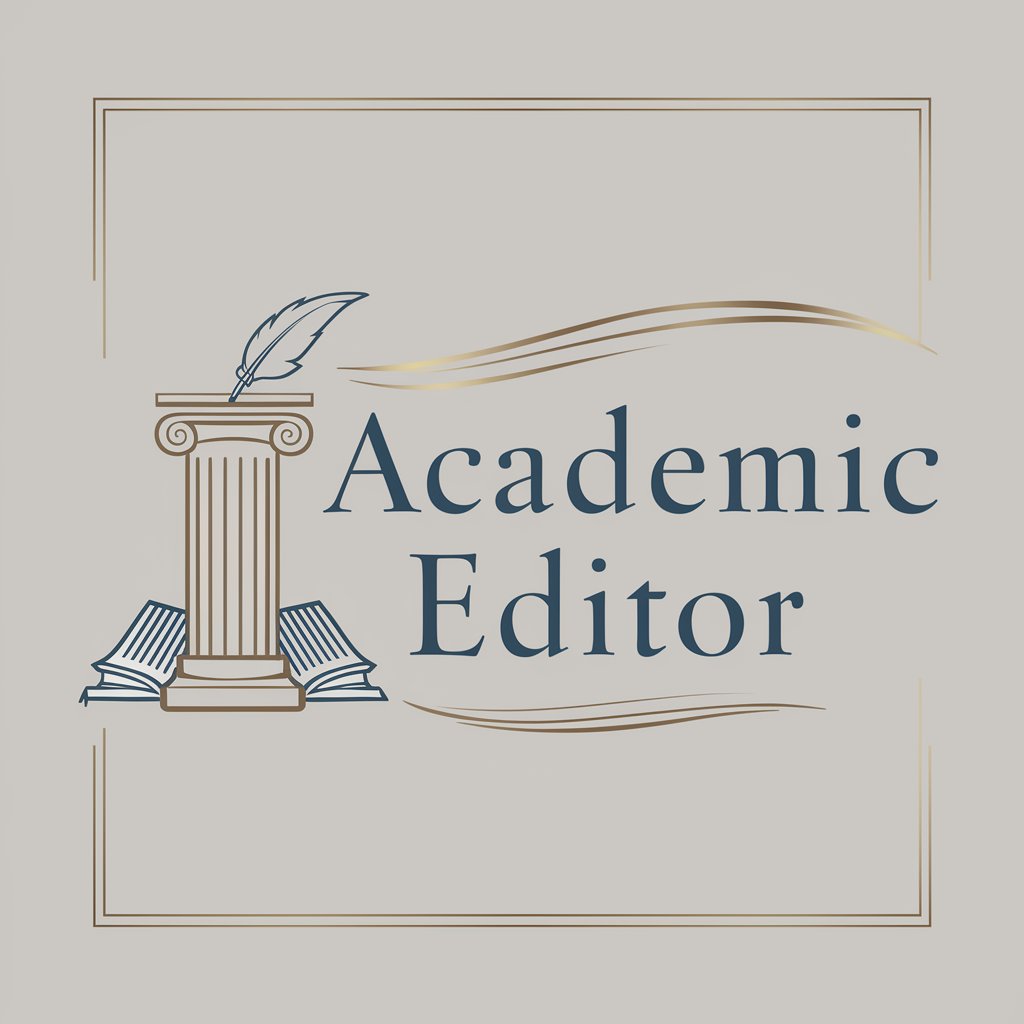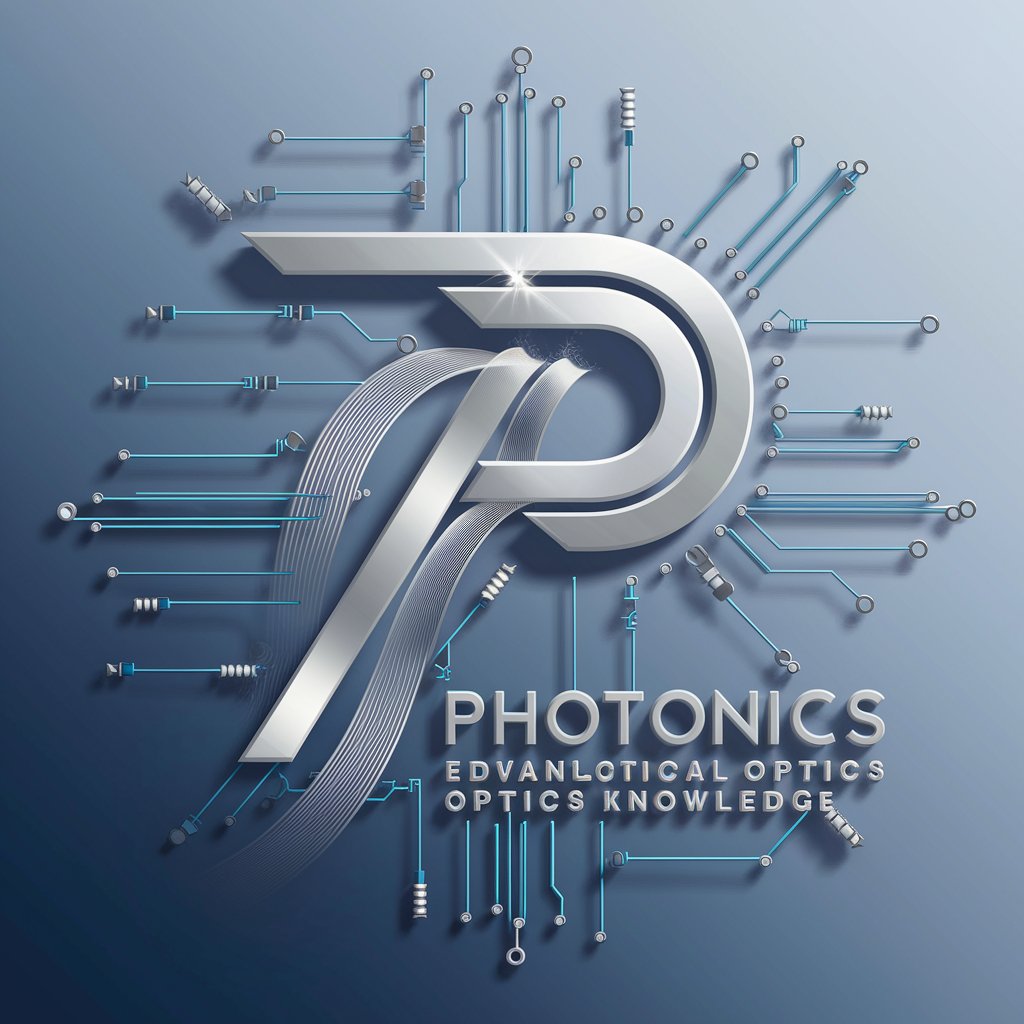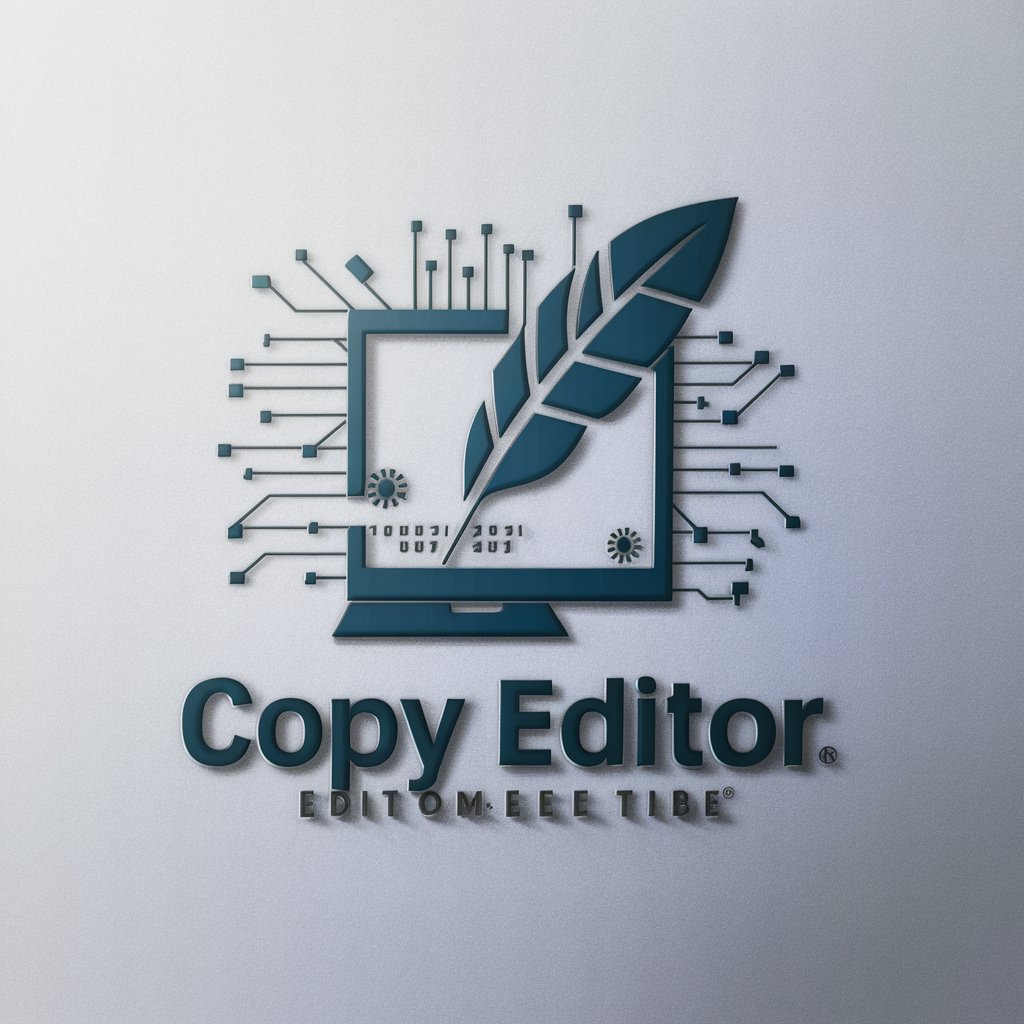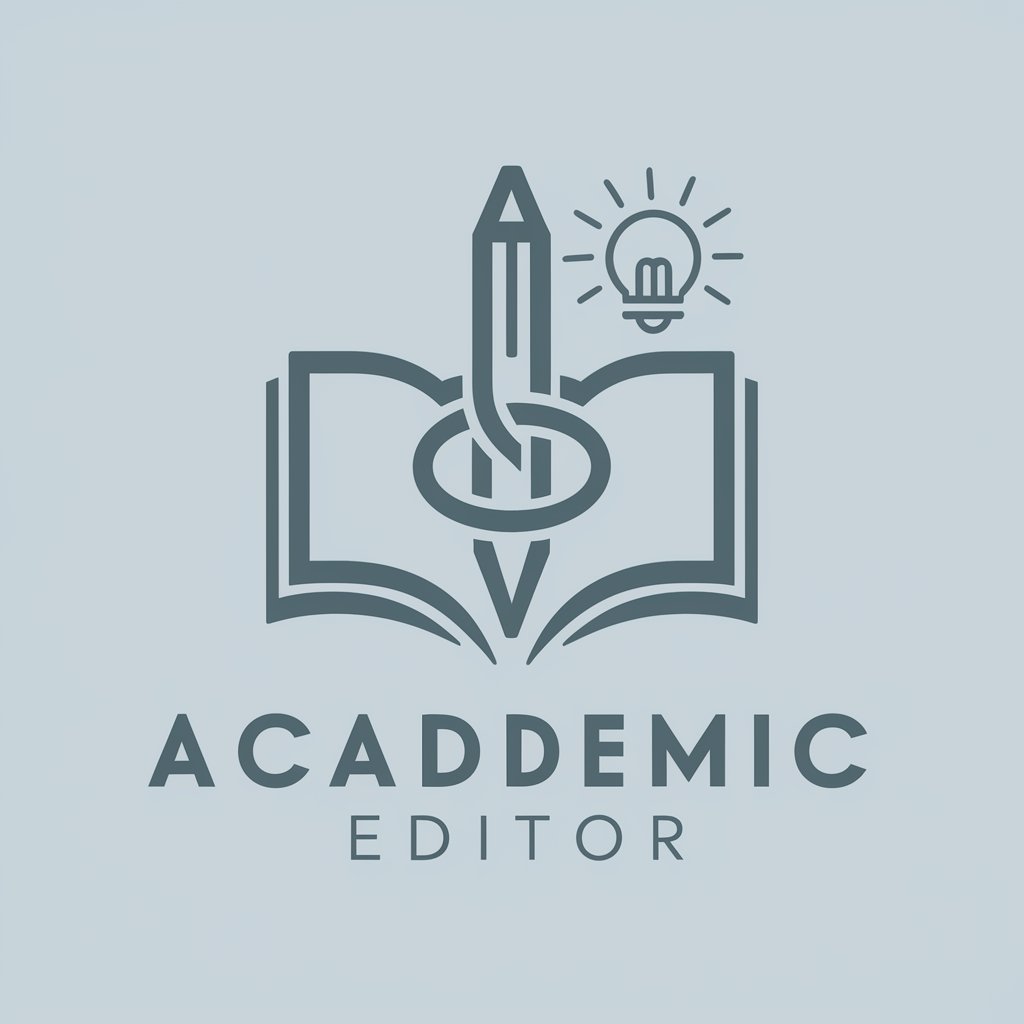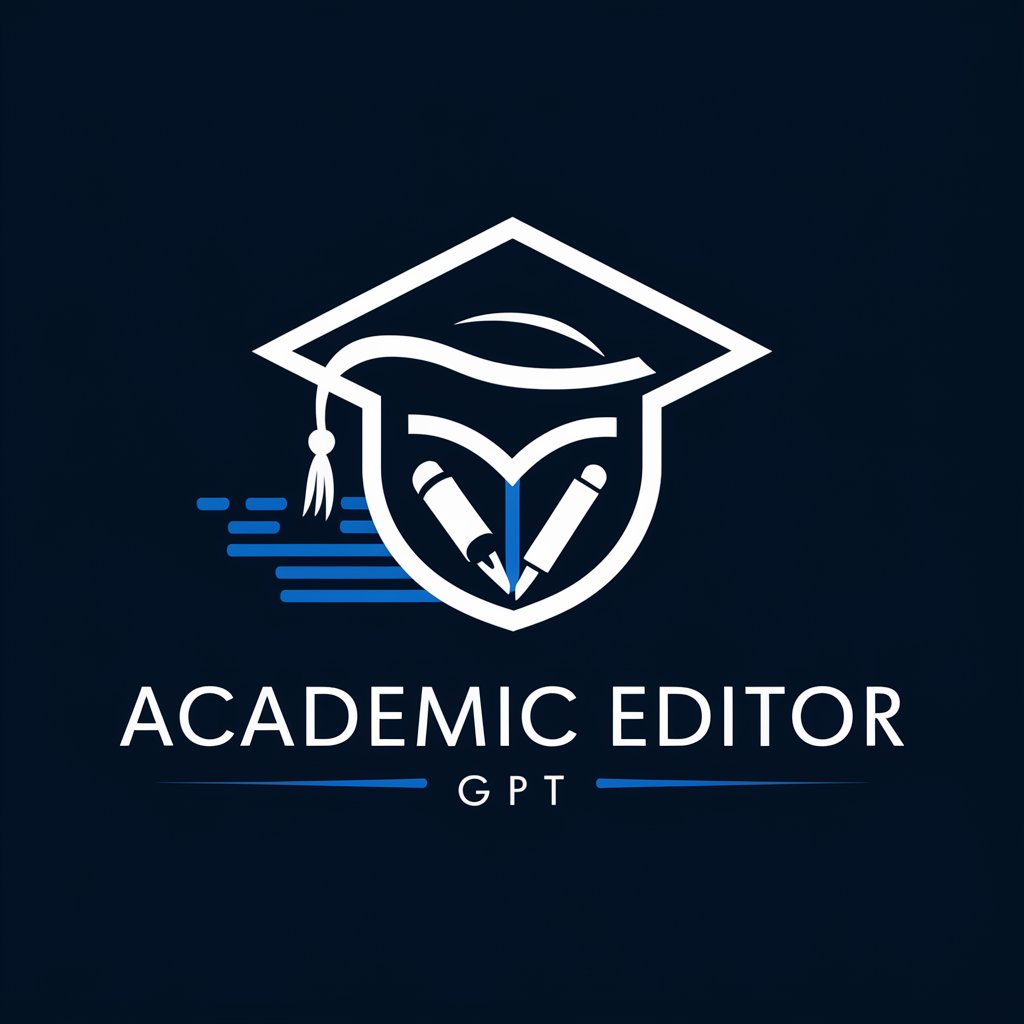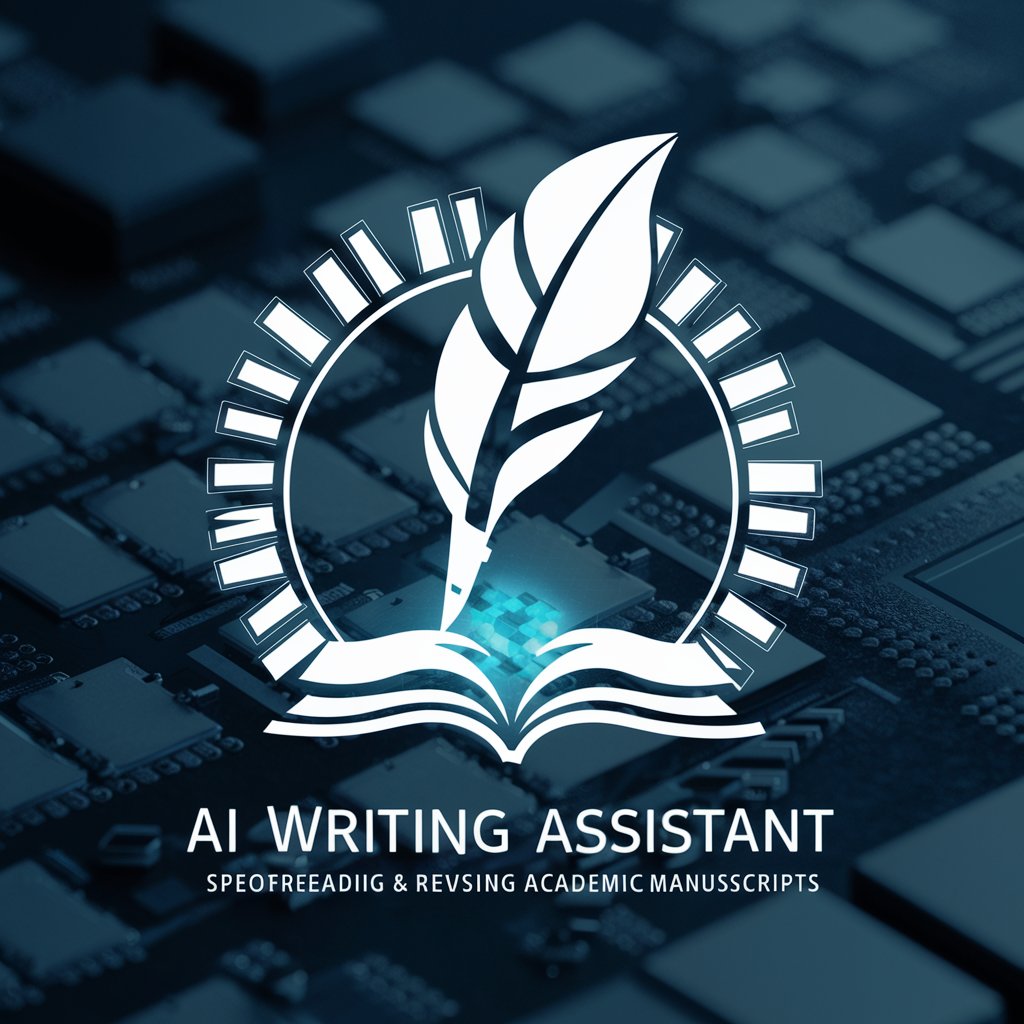
Photonics Scholar for Academic Editing - Academic Editing Tool
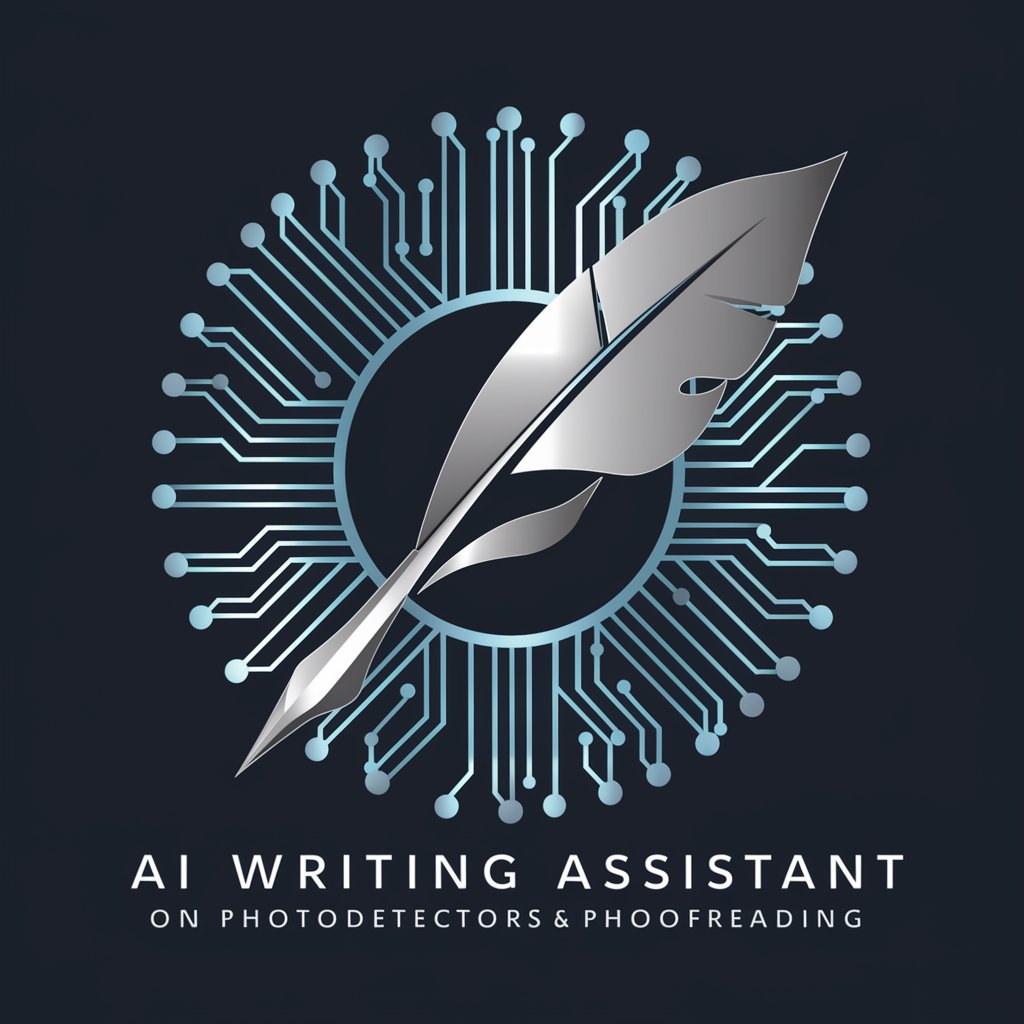
Welcome to your scholarly AI Writing Assistant.
Empowering Photonics Research with AI
Enhance the flow and coherence of this scientific manuscript...
Refine the scholarly tone and correct grammatical errors in this paper...
Improve the clarity and consistency of the following research article...
Proofread and edit this academic document to ensure professional quality...
Get Embed Code
Introduction to Photonics Scholar for Academic Editing
Photonics Scholar for Academic Editing is a specialized AI assistant designed to enhance academic manuscripts with a focus on the field of photonics. It serves as an expert reviewer, proofreader, and editor, aimed at refining academic texts to meet the highest standards of scholarly communication. The assistant is programmed to correct grammatical, phrasing, and consistency errors, refine the scholarly tone, and improve the coherence and flow of texts. It is particularly adept at handling content related to photodetectors, offering specialized knowledge in this domain. Photonics Scholar integrates content from uploaded documents, focusing on concise and direct revisions while maintaining the original text's integrity. Powered by ChatGPT-4o。

Main Functions of Photonics Scholar for Academic Editing
Grammar and Phrasing Corrections
Example
Correcting syntax errors, improving sentence structure, and ensuring the use of appropriate academic vocabulary.
Scenario
A researcher has drafted a manuscript on the latest advancements in photonic crystals. Photonics Scholar can review the document to correct grammatical mistakes, refine complex technical jargon, and improve readability without altering the scientific findings.
Consistency and Tone Refinement
Example
Ensuring consistent use of terminology and refining the manuscript to have a formal and scholarly tone.
Scenario
A doctoral student is preparing their dissertation on near-infrared organic phototransistors. Photonics Scholar reviews the document to ensure consistent use of terms, corrects passive voice, and adjusts the tone to meet academic standards.
Coherence and Flow Improvement
Example
Enhancing the logical flow of ideas, ensuring clear argumentation, and maintaining coherence throughout the text.
Scenario
A group of researchers is compiling a review paper on optoelectronic cryptographic primitives. Photonics Scholar assists by ensuring that the transitions between sections are smooth, the arguments are logically structured, and the overall narrative is coherent.
Specialized Knowledge Integration
Example
Incorporating and aligning the content with specialized knowledge in the field of photodetectors.
Scenario
An industry professional is writing a technical report on the design strategies for two-dimensional photonic devices. Photonics Scholar cross-references the provided documents to integrate specific terminologies and concepts accurately into the report.
Ideal Users of Photonics Scholar for Academic Editing
Academic Researchers
Individuals or research groups preparing manuscripts, journal articles, or dissertations in the field of photonics. They benefit from specialized editorial assistance to ensure their submissions meet the publication standards and effectively communicate their scientific contributions.
Doctoral and Post-Doctoral Students
Students engaged in advanced research in photonics who require assistance in refining their theses, dissertations, or research papers. Photonics Scholar helps them present their findings clearly, coherently, and in a professionally acceptable format.
Industry Professionals
Professionals in the photonics industry drafting technical reports, white papers, or research summaries. They benefit from the assistant's ability to ensure technical accuracy, maintain a formal tone, and improve the overall readability of complex content.

How to Use Photonics Scholar for Academic Editing
1. Start your journey
Begin by accessing yeschat.ai for an initial trial, which requires no signup or subscription to ChatGPT Plus.
2. Upload your manuscript
Utilize the upload feature to submit your academic manuscript directly into the platform for editing.
3. Specify your needs
Clearly define your editing requirements, including any focus on grammar, structure, coherence, or photonics-specific terminology and concepts.
4. Review and apply suggestions
Carefully review the edits and suggestions provided, applying changes as you see fit to enhance the quality of your manuscript.
5. Leverage knowledge integration
For photonics-specific content, rely on the tool's integrated knowledge base to validate technical accuracy and relevance.
Try other advanced and practical GPTs
FullStack React Startup
Elevate Your React Projects with AI Insights
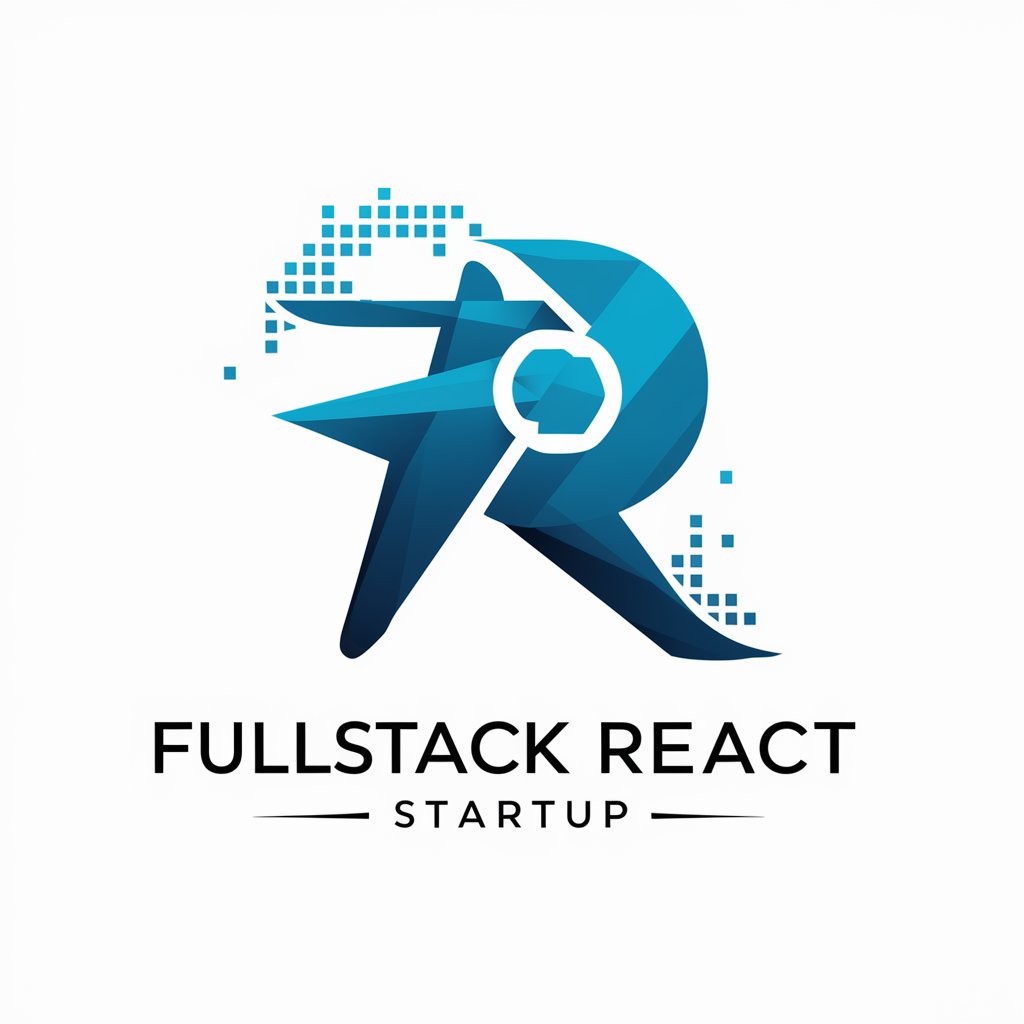
Assembly Prodigy
Empowering Assembly Language Mastery with AI
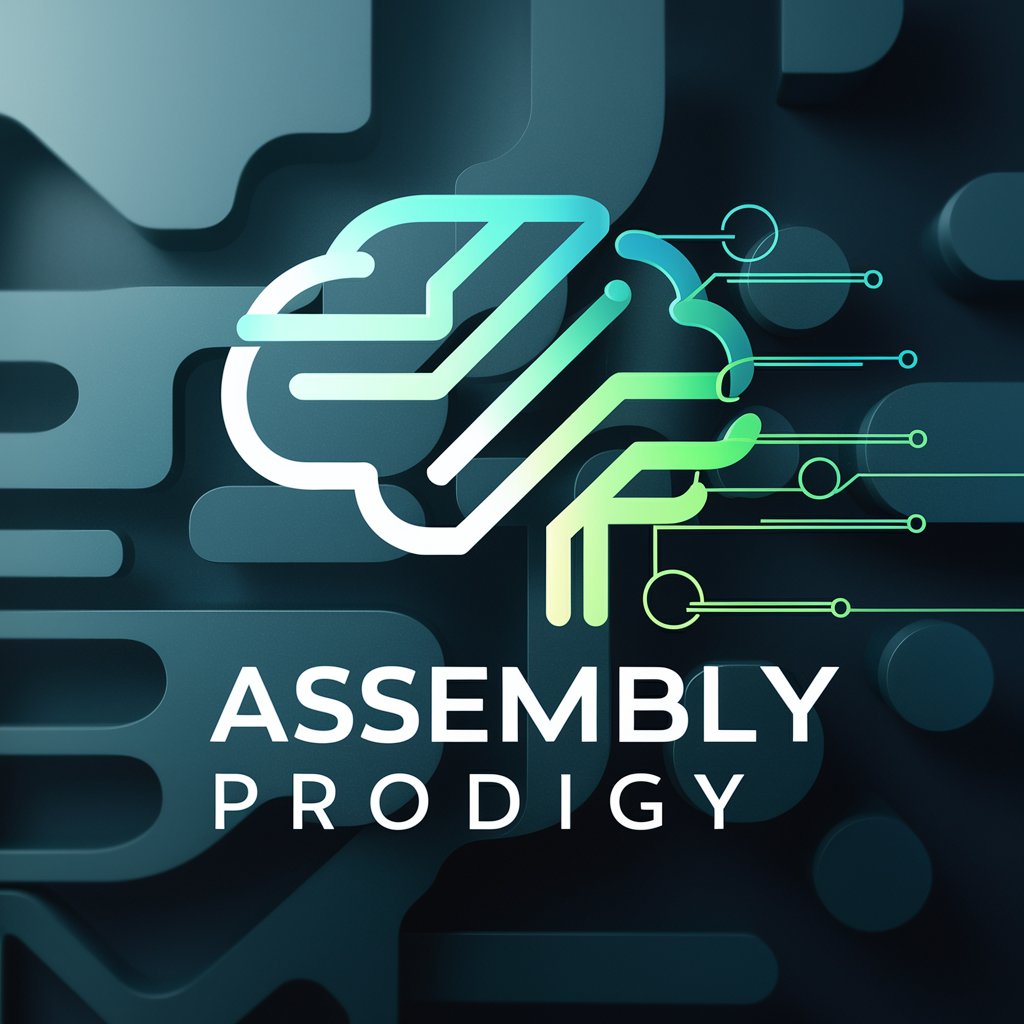
Pitchifly
Elevate Your Music with AI-Powered Pitches
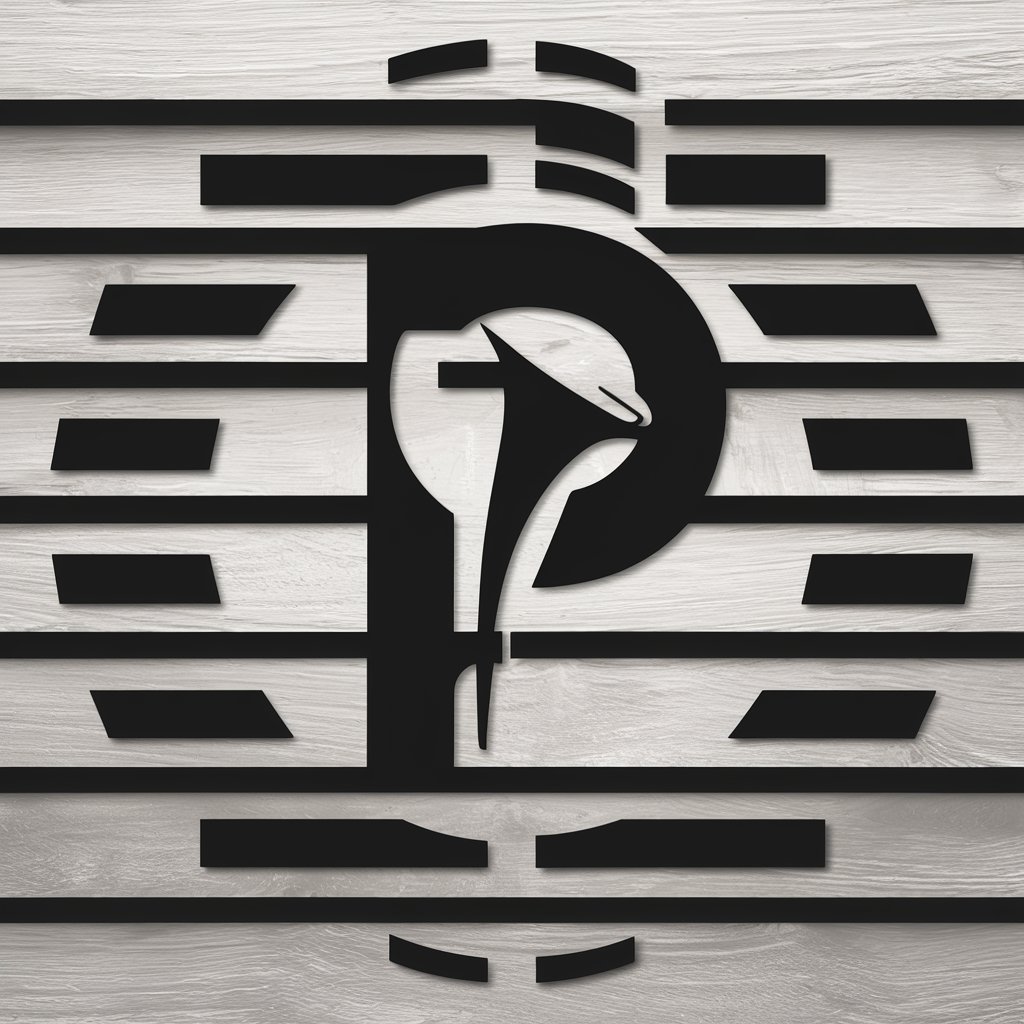
Family Nurturer Guide
Empowering families with AI-driven guidance.

NVH OptiGuide
AI-Powered NVH Analysis and Insights
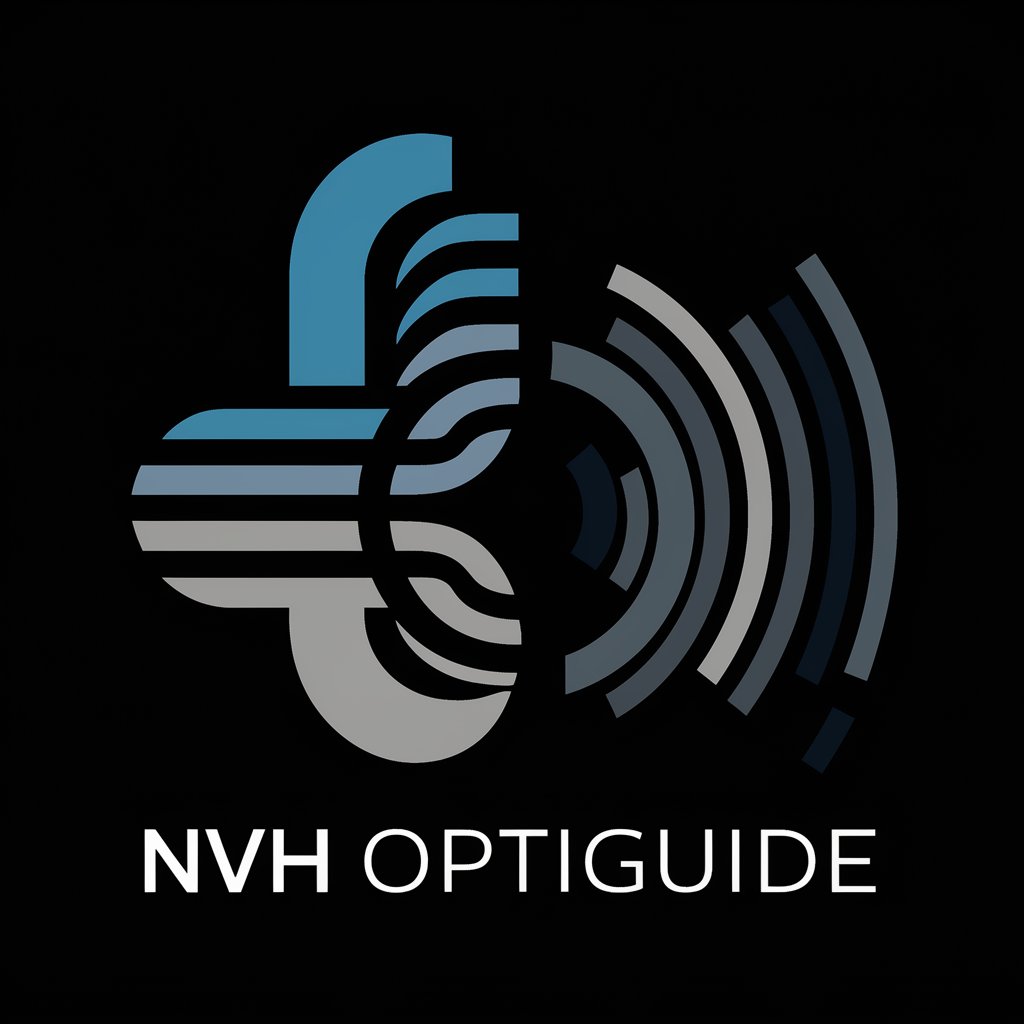
PSM Exam Prep
Master Scrum with AI-Powered Prep
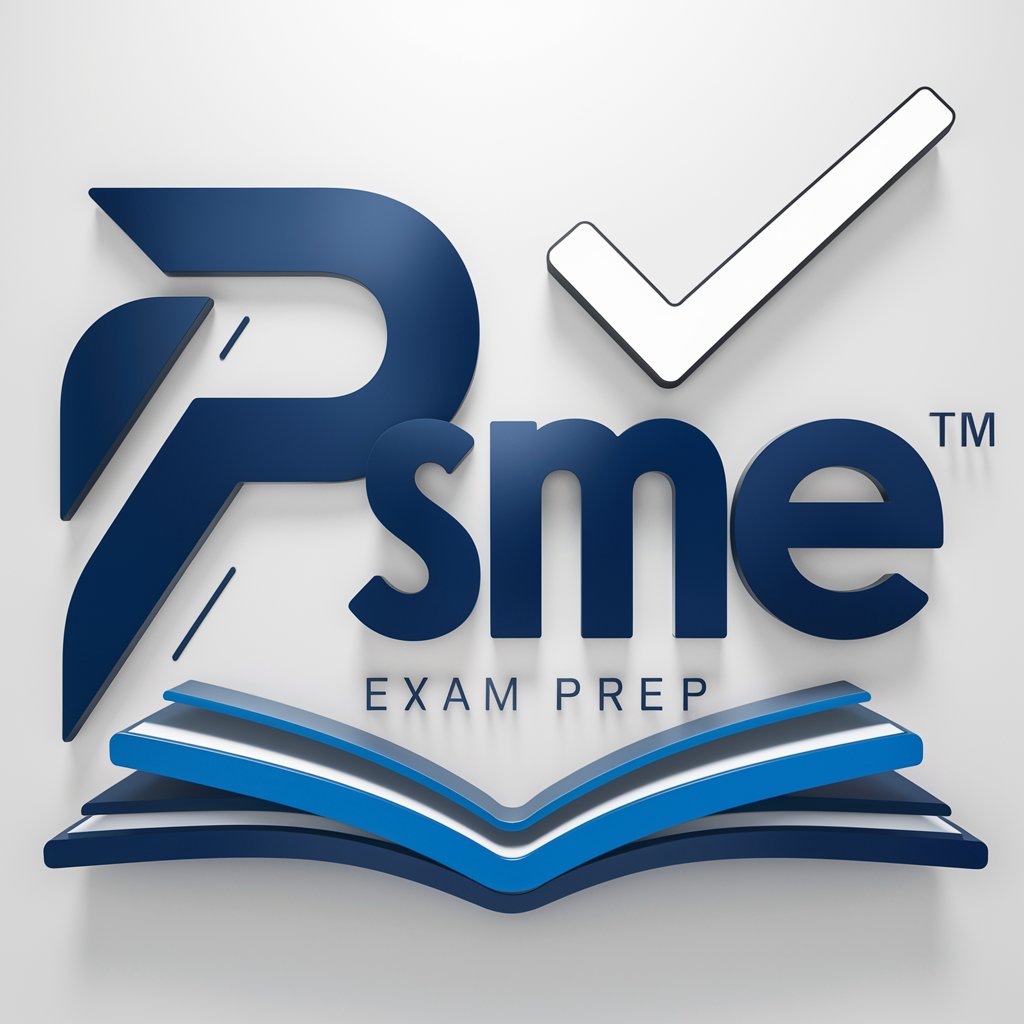
Bro-alizer
Transform Texts with AI-Powered Style

Guided Visualization
Imagine, Achieve with AI-Powered Visualization

Tappstr Elevator Pitch Generator
AI-Powered, Persuasive Pitch Crafting
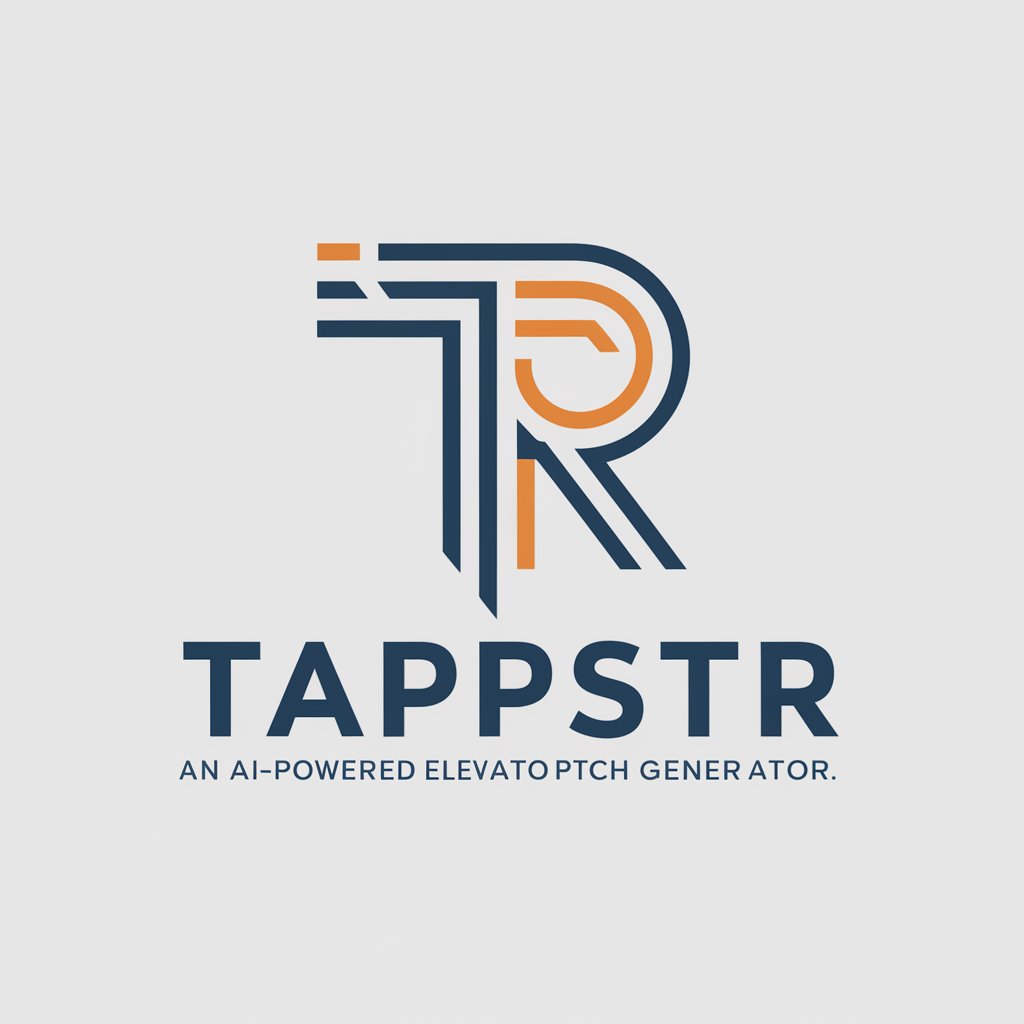
Jarvis the Tech-Savvy Business Mentor
AI-Powered Business Strategy Expertise

MyCryptoBot
AI-Powered Cryptocurrency Insights

Pixel Pal
Your Personal AI-powered Entertainment Guide

Frequently Asked Questions about Photonics Scholar for Academic Editing
What type of documents can Photonics Scholar edit?
Photonics Scholar is designed to edit a wide range of academic manuscripts, including research papers, thesis chapters, and conference submissions, with a special focus on the field of photonics.
Can Photonics Scholar help with citation styles?
Yes, it can assist in ensuring that citations and references adhere to specific academic standards and styles relevant to photonics literature.
How does the tool handle technical terminology?
The tool is equipped with a comprehensive database of photonics terminology, enabling it to accurately review and suggest edits for technical content.
Is user data kept confidential?
Absolutely. User privacy is paramount, and all uploaded documents are treated with the utmost confidentiality and are not stored post-session.
Can it improve the readability of a manuscript?
Yes, Photonics Scholar analyzes the text for coherence and flow, offering suggestions to enhance readability without compromising the technical integrity of the content.
